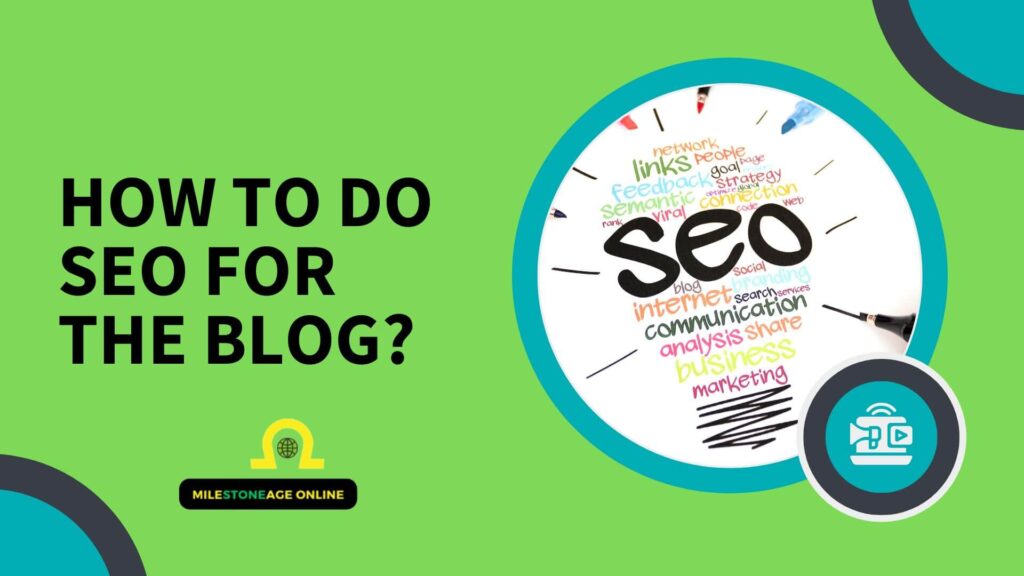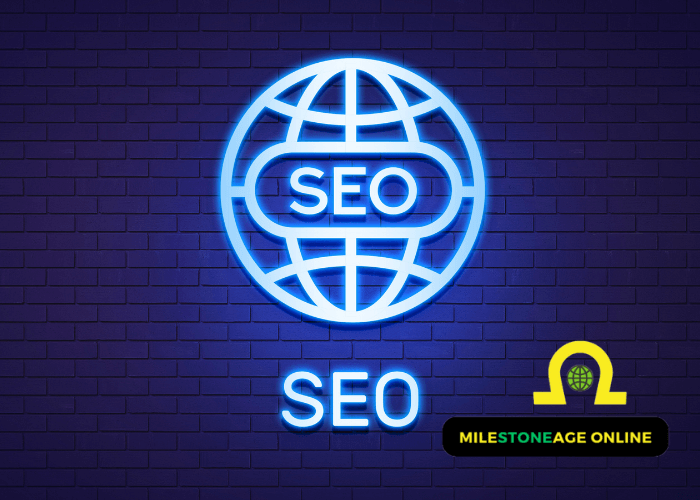As a seasoned digital marketer navigating the ever-evolving landscape, I couldn’t help but delve into the profound impact of Google’s E.E.A.T update.
Having weathered algorithmic storms, Google’s E.E.A.T, the Experience, Expertise, Authoritativeness, and Trustworthiness criteria are now paramount. This seismic shift means my experience isn’t just anecdotal – it’s a vital compass in the digital realm.
Google’s heightened scrutiny demands a strategic reassessment, where my years of hands-on expertise come into play.
Join me on this journey as we unpack the nuances of Google’s E.E.A.T., deciphering its implications and crafting a resilient digital strategy that not only survives but thrives in the wake of this algorithmic evolution.
What Is Google’s E.E.A.T?
In the dynamic landscape of online visibility, Google’s E.E.A.T update has emerged as a pivotal force, reshaping the digital terrain. Understanding Google’s E.E.A.T – Experience, Expertise, Authoritativeness, and Trustworthiness – is now non-negotiable for anyone seeking prominence in search engine results.
What Is E.E.A.T?
- Expertise: A measure of the content creator’s proficiency and knowledge in a particular field.
- Authoritativeness: The perceived credibility and influence of the content creator or website within its niche.
- Trustworthiness: The reliability and dependability of the information provided, are crucial for user confidence.
In December 2022, Google incorporated an additional “E” into the acronym, transforming E-A-T into E-E-A-T, with the new addition representing “experience.” This adjustment underscores Google’s heightened emphasis on genuine, hands-on involvement and practical familiarity with the content’s subject matter.
What does this signify?
Google now prioritizes authentic, personal experience with the topic discussed in content. This is particularly crucial when users seek insights from individuals involved in the subject, especially when making purchasing decisions or seeking advice on specialized topics.
For instance, if you’re exploring advanced yoga poses, content from a certified yoga instructor would likely be preferred. Google rewards pages with higher rankings when the content creator possesses real-world experience in the topic.
Aligning with E-E-A-T principles not only enhances your content’s chances of securing prominent positions in the SERPs but also aids in navigating future Google algorithm updates successfully.
Google underscores that the “T” (trust) is foundational to E-E-A-T and holds immense significance. Essentially, Google asserts that without trustworthiness, the E-E-A-T level of your page is significantly diminished. After all, if users don’t trust your content, its overall value is compromised.
Experience:
Google’s definition of experience entails real-world, hands-on engagement with the subject matter addressed in the content.
In today’s digital landscape, marked by the proliferation of generative AI content, the significance of authentic experience has gained prominence.
This prompted Google to incorporate the experience into its guidelines, acknowledging the intrinsic value it brings.
Experience:
- Genuine Engagement: Google emphasizes firsthand engagement with content, valuing real-world experience in the subject matter.
- AI Limitations: In an era dominated by AI-generated content, the importance of genuine, human experience has become more pronounced.
- YMYL Emphasis: The emphasis on experience is critical for Your Money or Your Life (YMYL) pages, ensuring accuracy in topics impacting health, safety, happiness, or financial security.
- Human Distinction: Google’s guidelines highlight the inability of AI to authentically replicate human experience, setting human-generated content apart.
Demonstrating Experience:
- Tangible Evidence: Showcase your experience by providing tangible evidence within a specific subject area.
- Instructive Media: For example, a website focusing on carpentry tools can create instructional videos demonstrating hands-on techniques, providing firsthand experience.
- Google Recognition: Google’s Quality Raters acknowledge such demonstrations as compelling proof of experience, enhancing the perceived trustworthiness of your site.

Expertise:
Introduction: In the ever-evolving digital landscape, expertise has emerged as a cornerstone of online credibility. Understanding the nuances of expertise and effectively showcasing it can significantly elevate your digital presence.
Expertise:
- Specialized Knowledge: Expertise involves possessing in-depth, specialized knowledge in a particular field.
- Authority in Niche: It establishes you as an authority within your niche, fostering trust among your audience and search engines.
- Constant Learning: True expertise is dynamic, involving a commitment to continuous learning and staying abreast of industry developments.
- Problem Solving: Experts are adept at solving challenges within their domain, providing valuable solutions to their audience.
- Industry Recognition: Recognition from peers and industry acknowledgment further solidifies your expertise in the eyes of both users and search algorithms.
How to Demonstrate Expertise:
- Content Depth: Create comprehensive content that delves deep into your niche, showcasing a profound understanding of the subject matter.
- Case Studies: Present real-world case studies or success stories that highlight your expertise in solving specific problems.
- Certifications and Accolades: Display relevant certifications, awards, or accolades that validate your expertise and accomplishments.
- Contributions to Community: Actively contribute to industry forums, discussions, or blogs, showcasing your expertise through meaningful participation.
- Interactive Media: Utilize interactive media such as webinars, podcasts, or live sessions to engage with your audience and demonstrate your expertise in real time.


Authoritativeness:
In the digital realm, establishing authoritativeness is paramount for gaining credibility and influence. Understanding the key components of authoritativeness and effectively showcasing it can significantly elevate your online presence.
Authoritativeness:
- Established Leadership: Authoritativeness involves positioning yourself as a leader in your niche, showcasing a deep understanding and command over the subject matter.
- Quality Backlinks: Building high-quality backlinks from reputable sources enhances your website’s authority in the eyes of search engines.
- Consistent Quality: Maintaining a consistent standard of high-quality content establishes your website as a reliable and authoritative source within your industry.
- Social Proof: Engage with your audience through social media, showcasing testimonials, reviews, or endorsements to build social proof and affirm your authority.
- Industry Recognition: Garner recognition from peers and industry experts through awards, collaborations, or contributions, solidifying your position as an authoritative figure.
How to Demonstrate Authoritativeness:
- Thought Leadership Content: Create thought-provoking and insightful content that positions you as a thought leader in your field.
- Backlink Strategy: Actively pursue and cultivate backlinks from reputable and authoritative websites in your industry.
- Consistency Across Platforms: Maintain a consistent and authoritative voice across all digital platforms, reinforcing your brand’s credibility.
- Engage with Audience: Actively engage with your audience on social media, responding to queries, sharing valuable insights, and building a community around your expertise.
- Collaborations and Endorsements: Seek collaborations with influencers or experts in your industry, and display endorsements or testimonials to enhance your perceived authority.


Trustworthiness
In the digital landscape, trustworthiness is the bedrock of establishing meaningful connections with your audience. Unveiling the components of trustworthiness and effectively demonstrating it can instill confidence and loyalty in your online presence.
Trustworthiness:
- Reliability: Trustworthiness hinges on being a reliable source, and consistently delivering accurate and valuable information to your audience.
- Transparency: Openness and transparency in your communication build trust, as users appreciate honesty about your intentions and practices.
- User Experience: A seamless and secure user experience, from website functionality to data protection, fosters trust among your audience.
- Credible Citations: Supporting your content with credible citations, references, and attributions enhances the trustworthiness of your information.
- Consistent Messaging: Ensuring consistency in your messaging and promises across various channels reinforces the reliability of your brand.
How to Demonstrate Trustworthiness:
- Clear Privacy Policies: Communicate your privacy policies, assuring users of the security measures to protect their data.
- Verified Testimonials: Display verified testimonials and reviews from satisfied customers to showcase real experiences and build trust.
- Secure Website: Implement SSL certificates and other security measures to ensure a secure browsing experience for your users.
- Author Information: Provide detailed author information, including qualifications and credentials, to establish the credibility of your content.
- Responsiveness: Timely responses to user inquiries, concerns, or feedback demonstrate a commitment to customer satisfaction and reinforce trust.


Is Google’s E-E-A-T A Ranking Factor?
Yes, Google’s E-E-A-T (Experience, Expertise, Authoritativeness, and Trustworthiness) is considered a significant ranking factor by Google. While it’s not a single, standalone metric, Google’s algorithms assess a website’s content and overall reputation based on these three factors.
Websites that demonstrate high levels of expertise, authoritativeness, and trustworthiness are more likely to rank well in search engine results.
Google’s Quality Rater Guidelines explicitly mention E-E-A-T as a critical aspect in evaluating the quality of web pages. Quality raters assess how well a page and its content align with E-A-T principles.
While E-E-A-T itself isn’t a direct ranking factor, the signals it encompasses play a crucial role in determining a page’s relevance and credibility, influencing its position in search results.
Websites that prioritize and enhance their E-E-A-T are more likely to achieve better visibility in search engine rankings.


How To Improve Your Google’s E-E-A-T
In the ever-evolving landscape of online visibility, enhancing your Google’s E-E-A-T (Experience, Expertise, Authoritativeness, and Trustworthiness) is pivotal for gaining credibility and improving search engine rankings.
Elevating these key elements not only establishes your digital presence but also ensures that your content resonates positively with both users and search algorithms.
How To Improve Your Google’s E-E-A-T:
1. Demonstrate Expertise through Comprehensive Content:
Creating in-depth and authoritative content is paramount to showcasing your expertise in your niche. By providing valuable insights, practical tips, and thorough analyses, you establish a foundation of knowledge that resonates with your audience.
2. Build Authoritativeness with High-Quality Backlinks:
Cultivating strong, relevant backlinks from reputable websites within your industry is a strategic approach to boosting your site’s authority. Actively engaging in outreach and partnerships contributes to the overall credibility and authority of your digital presence.
3. Prioritize User Experience and Transparency:
Ensuring a seamless and secure user experience on your website, from navigation to data protection, is crucial for building trust. Additionally, transparent communication of your intentions, practices, and policies further enhances your site’s credibility.
4. Encourage Social Proof and User Reviews:
Showcasing testimonials, reviews, and endorsements from satisfied users provide social proof of your brand’s trustworthiness. Active engagement with your audience on social media platforms fosters a positive community, reinforcing the credibility of your brand.
5. Consistency Across Platforms and Messaging:
Maintaining a consistent brand voice and messaging across all digital platforms is key to building trust. Ensuring that promises made in your content align with the actual user experience establishes a reputation for reliability and strengthens the trustworthiness of your brand.
6. Semantic Content Linking:
Integrate semantic content linking to enhance the context and relevance of your content. Linking related topics within your content framework provides a more comprehensive user experience, signaling expertise, and authority.
7. Address Knowledge Gaps:
Identify and fill knowledge gaps within your content. Offering comprehensive information on relevant topics not only showcases expertise but also builds trust by addressing user queries and needs.
8. Use Person Schema Markup:
Implement Person Schema Markup to enhance the visibility and understanding of your content by search engines. This structured data markup highlights the individuals behind the content, reinforcing the authority and credibility of your digital presence.
Wrap Up
In navigating the terrain of Google’s E.E.A.T update, my experience as a digital marketer has revealed the undeniable impact of prioritizing Experience, Expertise, Authoritativeness, and Trustworthiness.
Embracing this shift isn’t just a tactical move; it’s a commitment to fostering genuine connections with audiences.
As I’ve witnessed, demonstrating expertise through comprehensive content, building authority with quality backlinks, and ensuring transparency in user experience are not mere checkboxes – they’re the keystones of a resilient online presence.
Trust, in the eyes of Google and users alike, is the linchpin. In a digital world evolving at breakneck speed, adapting to and embodying Google’s E.E.A.T principles isn’t just about SEO; it’s about crafting a narrative of credibility and reliability that resonates in every pixel and algorithmic.








